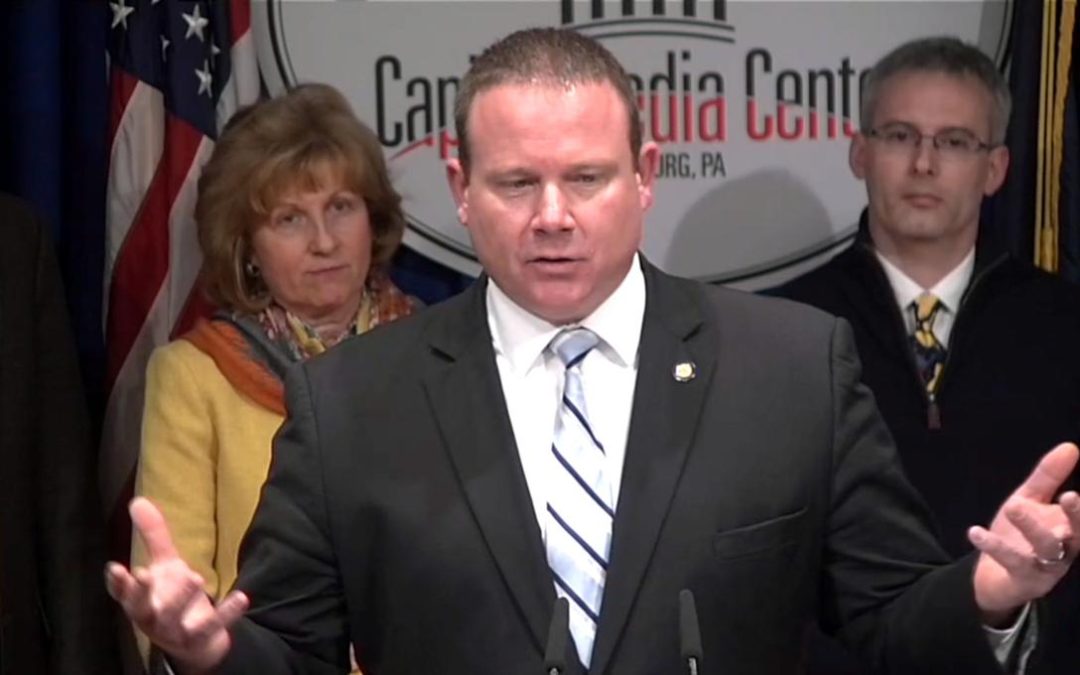About 80 percent of children diagnosed with cancer will survive. But the fight continues as the treatment, which often consists of the same drugs used for adult cancer patients, can leave them with chronic medical conditions for the rest of their lives.
Pennsylvania state Sen. Scott Martin, R-Lancaster, is sponsoring a bill that would allow companies to receive tax credits for donations to pediatric cancer research centers. The tax credits would be limited to $10 million a year for a 10-year period for a total of $100 million.
Eleven-year-old Noelle Weinhold told the Senate Finance Committee more research needs to be done into pediatric cancer treatments. She was treated with drugs older than her grandparents, she said. She no longer has evidence of the Stage 4 Wilms Tumor that attacks the kidneys, but the radiation has caused damage to her bowel, bladder and hearing, and she has vision neuropathy, she said.
“I can say with certainty that you would not want your kids or grandkids treated with the drugs that I was treated with,” Noelle testified. “In over three decades, over 200 new treatments were approved for adults with cancer. In the same amount of time, only three new drugs were approved for kids like me.”
Childhood cancers are biologically different from adult cancers, said Dr. Elizabeth Fox, director of developmental therapeutics in oncology at Children’s Hospital of Philadelphia.
“Unfortunately, two thirds of survivors of childhood cancer have at least one chronic medical condition and one quarter of the children who are cured of cancer face a severe or life-threatening late effect of the curative treatments,” Fox told the committee. “Some side effects become lifelong problems like infertility, growth delays, learning problems, and even secondary cancers later in life. We need safer, more specific and effective treatments so more children are cured with fewer side effects during and after treatment.”
The problem may lie with drugmakers, Dr. Lisa McGregor, chief of pediatric hematology-oncology at Penn State Children’s Hospital, testified.
“Because childhood cancer is rare, developing therapies specifically for children is not always profitable, and thus is not at the forefront of the business strategy for pharmaceutical companies,” McGregor said.
Despite some advances in treatment, some children still succumb to cancer. Sandy McHugh’s son, Jake, was one of them. He died six months after being diagnosed with a form of lymphoma. The only treatment available was the same used in adults. Jake passed away at age 14 while waiting to try a new treatment.
“We must do better for our children,” McHugh testified. “Childhood cancer is the number one cause of death by disease for children yet there have only been four new drugs developed for pediatric cancers in the past 50 years.”
The bill remains in the committee.








Most Commented